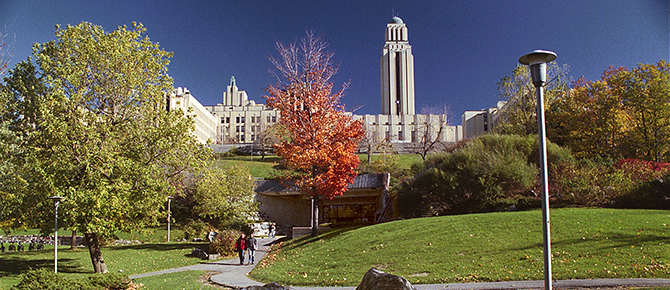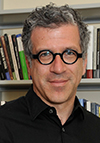Install the app
Install this application on your home screen for quick and easy access when you’re on the go.
Just tap then “Add to Home Screen”
Install this application on your home screen for quick and easy access when you’re on the go.
Just tap then “Add to Home Screen”
Install this application on your home screen for quick and easy access when you’re on the go.
Just tap then “Add to Home Screen”

Time 1800-2000 - Thursday 27 August
Location Ernest-Cormier amphitheatre, Pavilion 2900 Roger-Gaudry Building
 |
Welcome addressBy Frédéric Mérand, Associate Professor of Political Science, Along with Juliet Johnson from McGill University, Professor Mérand is head of the European Union Center of Excellence-Montréal. EUCE-Montréal and CÉRIUM are the backbone of this conference’s local organising committee. The author or co-author of four books on European security, defence policy and the EU, his articles have appeared in many academic journals. Professor Mérand’s address will be followed by the presentation of the ECPR’s Lifetime Achievement Award, and the Mattei Dogan Foundation Prize. |
|
|
Plenary LectureMichael Ignatieff Illiberal Democracy and Capitalist Authoritarianism: Is Freedom Divisible? The new authoritarians in Russia and Eastern Europe are gambling that they can offer their citizens private freedoms while denying them public liberty. Are they right? How should liberal democracies respond? Michael Ignatieff is a Professor of Practice at Harvard Kennedy School. He is a Canadian writer, teacher and former politician. He holds a doctorate in history from Harvard University and has held academic posts at Kings College, Cambridge and at the Kennedy School of Government, Harvard University. He served in the Parliament of Canada and was Leader of the Liberal Party of Canada. His books include The Needs of Strangers, (1984), Scar Tissue (1992), Blood and Belonging, (1993) The Warriors Honour, (1997) Isaiah Berlin (1998) The Rights Revolution (2000) Human Rights as Politics and Idolatry (2001), The Lesser Evil: Political Ethics in an Age of Terror (2004). His latest book is Fire and Ashes: Success and Failure in Politics (2013). He holds a joint professorial appointment at the Munk School of Global Affairs, University of Toronto and at the Kennedy School of Government, Harvard University.
|
Roundtable 1 The Language of Political Science
Time 1400-1530 - Thursday 27 August
Location Room B-2285 Jean-Brillant
This Roundtable will address three related questions: 1, Should we all publish (mostly) in English? 2. What are the consequences of the presence of a dominant language on the development of political science? 3. What is the impact of language on how we do political science.
Chair
André Blais, Université de Montréal
Speakers
David Lublin, American University
Jane Jenson, Université de Montréal
Peter A. Kraus, University of Augsburg
Jean-François Laslier, Paris School of Economics
Roundtable 2 Transatlantic Relations and European Integration
Time 1400-1530 - Friday 28 August
Location Room B-2285 Jean-Brillant
This Roundtable will address the challenges facing transatlantic relations in the context of European integration.
Chair
Frédéric Mérand, Université de Montréal
Speakers
Anand Menon, King's College London
Frédéric Mérand, Université de Montréal
Constanze Stelzenmueller, Brookings Institution
Sergio Fabbrini, LUISS University
Roundtable 3 Attitudes Towards Immigration and Ethnic Diversity in Minority Nations
Funded by the Institute for Research on Public Policy (IRPP), a Montreal-based think tank.
Time 1400-1530 - Friday 28 August
Location Room B-2245 Jean-Brillant
Growing international migration constitutes a tremendous challenge for contemporary democracies, no more so than for minority nations. Among the challenges, in many cases, is for the latter to convince immigrants to adopt a language that is only spoken by a minority of the population of their new country. The challenge is not, however, only one of integration of immigrants. It is also, in some cases, one of acceptance of immigration from the native-born population. Since minority nations often stress their unique culture and language, newcomers who speak different languages and have different cultural traits may be perceived as a cultural threat, contributing to anti-immigrant backlash. Moreover, considering that newcomers are often more likely to express loyalty to the central state than the subnational one (Bilodeau et al. 2010), they may be viewed as a political threat by those among the native-born population that support independence of the minority nation.
We currently know too little about what accounts for the attitudes of citizens towards immigration in minority nations. More specifically, few studies have explored the respective impact of factors such as national identity, feelings of cultural threats or support for independence on attitudes towards immigration (although see Escandell and Ceobanu, 2009; Turgeon and Bilodeau, 2014)
This Roundtable will focus on the following questions: Do population in minority nations entertain positive or negative attitudes toward immigration and ethnic diversity more broadly? What factors structure attitudes toward immigration in minority nations? And are such factors different than factors structuring attitudes toward immigration in majority nations?
The Roundtable will start with a presentation by A. Bilodeau and L. Turgeon based on a new study on attitudes toward immigration and ethnic diversity in Quebec. This study is drawn from the Provincial Diversity Project, a survey of 10,000 Canadians from all provinces, including oversamples of young Canadians from all regions. The survey contains a rich battery of questions on attitudes toward immigration and ethnic diversity as well as key variables to potentially understand the roots of such attitudes in the context of minority nations such as Quebec.
Three other participants will share their expertise, reflection and own research findings on the topic in other countries/regions and also react to the findings presented by A. Bilodeau and L. Turgeon.
Chairs
Antoine Bilodeau, Concordia University
Luc Turgeon, University of Ottawa
Speakers
Antoine Bilodeau, Concordia University
Luc Turgeon, University of Ottawa
Eve Hepburn, University of Edinburgh
Xavier Excandell, University of Northern Iowa
Alain-G Gagnon, Université du Québec à Montréal